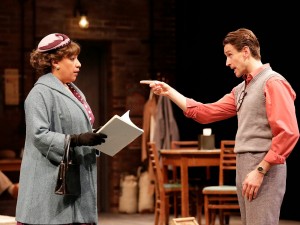Summary: A productive rehearsal can keep pacing on set fast and ready for shooting.
When you’re filming a production, it’s important for actors to have some time to work together on their scenes and run lines. Rehearsing helps everyone get acquainted with the space, and for other actors to build some camaraderie and anticipation on set. Rehearsal time tends to be more limited on film or television, but it’s an important part of stage acting and direction.
Script Time
Actors need to know lines, but they should have a keen sense of flow for the scene too. While you’re preparing the camera or setting the stage, actors should be on their feet and blocking scenes. This should happen naturally, even if they are sitting and running through lines with each other.
If an actor under reads, meaning they have not studied the script enough, then blocking and rehearsing will give them some much needed prompts before stepping in front of the camera. However, this might be unacceptable to you as a director. Actors like to approach the story with fresh eyes, but that’s not always the most professional decision to make. As director, you need to make yourself responsible for actors learning lines, and a table read or blocking session can be a good time to make sure that’s getting done.
Table reads are to hear the tone of the scenes, not a time to hash out specifics. Try to keep in mind that actors are like tools to get the job done. You should also have a feel for what you want.
Bio: Charles Matthau is a director, producer and storyteller who runs The Charles Matthau Company in Los Angeles. Charles Matthau is best known for his adaptations, which include “The Grass Harp” and “Freaky Deaky.”

